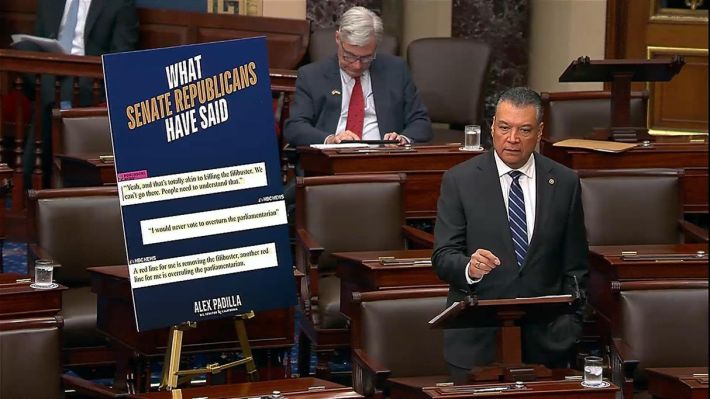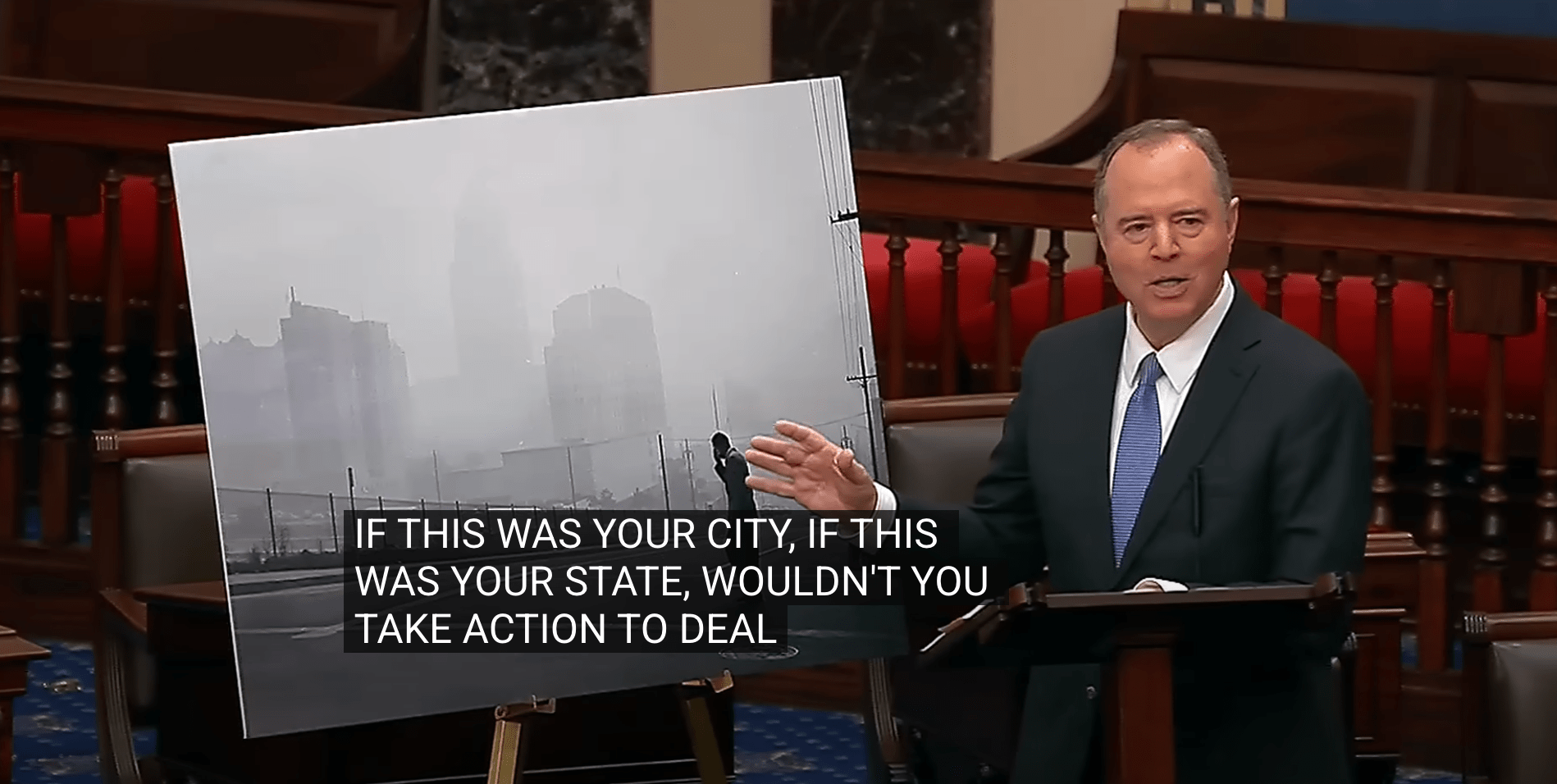In anticipation of a Senate effort to deal a fatal blow to California's emissions authority, California Senators Adam Schiff and Alex Padilla appealed to the body's better (and procedural) angels.
The senators utilized two arguments to make their case: a moral one and a procedural one. The moral argument goes that California has long been a leader in the battle for clean air and against Global Warming and Climate Change and the federal government should not step on its right to continue to lead. The procedural argument is that Republicans are attacking the clean air regulations using the wrong method.
Two weeks earlier, the House of Representatives had rescinded three waivers that California received from the federal Environmental Protection Agency (EPA) under the Obama and Biden administrations concerning clean air and emissions.
Of the three, the most controversial and far-reaching one requires that 35 percent of all vehicles sold by every auto manufacturer in California be electric and phases out the sale of gas-powered new cars completely by 2035.
The others apply to freight trucks. The first mandates that medium- and heavy-duty vehicles shift from diesel to zero-emission trucks by 2045. The other mandates that a low-carbon, but more expensive, diesel fuel be used in freight trucks in California.
The Senate is expected to follow suit, although no dates have been set for the resolutions to be heard.
The senators divided up the task, with Schiff making a moral argument for California's emissions leadership and Padilla reminding his fellow senators both of why California's actions were so urgent and how dangerous it is to disregard Senate procedure
Padilla's speech can be watched in its entirety here and Schiff's here.
The Moral Argument
Pointing at the photograph of a smoggy Los Angeles street from 1955, Schiff recounted the history that allows California to set its own standards. In short, because California had its own clean air laws before the United States enacted the Clean Air Act in 1966, it can continue to make its own stricter laws and other states can choose to follow the federal law or California’s.

The success of these regulations in cleaning California’s air is irrefutable.
“In some cases, the smog was so bad that people mistook it for a chemical weapons attack,” Schiff recounted. “And over the coming decades, it got worse.”
But then, California fought back. “In 1966, California took the first step to regulate tailpipe emissions, to tackle this smog head on. In fact, some of our biggest achievements and biggest actions took place under Republican Governors," he said.
"And wouldn’t you take action if this was your state?” Schiff asked, pointing to the black and white picture of old Los Angeles.
The Procedural Argument
Republicans have planned to use a law known as the Congressional Review Act (CRA) to rescind these permits. A CRA vote cannot be filibustered, so 51 votes would be needed to pass it instead of 60 to break a filibuster. Both the nonpartisan Government Accountability Office and the Senate Parliamentarian have ruled that the CRA cannot be used to rescind these waivers, a fact seized on by Padilla in his testimony. [For a full explanation of why the CRA may not be a legal way to challenge CA’s emissions rules, read our previous coverage of this issue.]
While Schiff was flanked by an image of a smoggy past, Padilla chose quotes from Republicans’ previous positions for his poster board. As recently as last year, Senate Republicans were urging a Democratic Senate majority to heed the rulings of the Parliamentarian. Now that the shoe is on the other foot, the Dems are reminding their counterparts of their own words.

"If successful, it would open the door to ignoring the Parliamentarian on any ruling that you don’t like,” Padilla concluded. “And if Republicans can ignore the Parliamentarian on a CRA, then why not the tax bill that they’re working so hard on? Or health care? Or anything else?”
When there was talk of overruling the Senate Parliamentarian during the Biden administration during a discussion of cancelling student loans, the Parliamentarian ruled that the Democratic Senators’ plan was not legal. Republican Senators argued that the Democrats overruling the Parliamentarian would have grave consequences, as the Democratic base urged them to move forward anyway.
Padilla collected and displayed a series of quotes from Senate Republicans in recent years arguing that the rulings of the Parliamentarian were sacred and could not be ignore.
Now Majority Leader John Thune (R-S.D.) said that ignoring the Senate Parliamentarian would be “totally akin to killing the filibuster. We can’t go there.” Senator John Curtis (R-Utah) said “a red line for [him] is overruling the Parliamentarian,” and Senator Susan Collins (R-Maine) promised she would “never vote to overturn the Parliamentarian.”
Whether or not Thune, Curtis, and Collins meant what they said or whether it was just rhetoric to justify their actions at the time will be revealed in the coming weeks.
California Attorney General Rob Bonta has warned that should the Senate follow the houses lead and use the CRA to revote the waiver and President Trump signs the resolution into law, that California would seek a reversal of the federal law in court.






